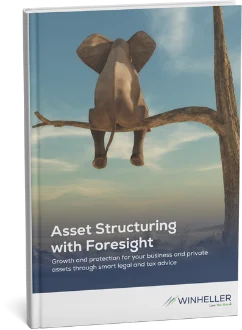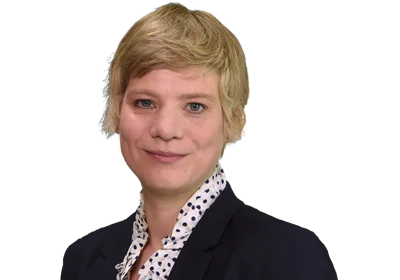Why Making a Will Is Good
Making No Will Often Gives Rise to Inheritance Disputes
Polls show that only, at least regarding German citizens, few people have made a will. If a person deceases and there is no will, intestacy rules as provided for in the German Civil Code will determine the case. All heirs become joint owners of the estate. The German inheritance law only determines who will become heir and what abstract share he may claim (i.e. in the case there is a spouse and a child, each will get half of the estate if at the time of devolution there was separation of property).
It is up to the heirs to agree on how the individual assets will be distributed among them. If real property is part of the estate and the heirs cannot agree on its fate, the only alternative may be to auction or sell it – often below its real value.
Such a solution, of course, is less-than-ideal, particularly under consideration that German inheritance law offers several options to prevent it: making a will, making legacies, concluding contracts of inheritance.

Intestacy Rules Can Yield Surprises
If the deceased was married, according to German intestacy rules, the spouse will become heir together with descendants (children, grandchildren etc.) of the deceased. If there are no descendants, together with the surviving spouse the parents of the deceased, i.e. the spouse’s parents-in-law are entitled to inherit. If at the time of the devolution of an inheritance the father or the mother is no longer living, the place of the deceased is taken by his descendants, i.e. usually the surviving spouse’s brothers- or sisters-in-law. Also, if the surviving spouse deceases shortly after the deceased, his assets ultimately will go to the deceased’s parents-in-law. This seldom is in the intention of the concerned parties and making a will can prevent that kind of consequences.
Public Will and Holographic Will
German inheritance law generally offers two alternatives of making a will: Making it on his/her own or involving a notary. As a rule, a public will is made by the testator declaring his last will to a notary or by handing the notary a document with the statement that it contains his last will. In any case, the notary forwards the document to the competent probate court where it will be deposited. For making a holographic will, no notary needs to be involved. However, formal requirements have to be observed in order for the will to be valid.
E.g., a holographic will has to be handwritten. It may not be written on your computer, even if it then will be printed and signed. To indicate date and place is not mandatory, however recommended in order to avoid misunderstandings in case the testator has made or will make another will.
Joint Will
By making a joint will, according to German inheritance law, spouses jointly dispose of their assets. As a rule, the dispositions are reciprocal and interdepending: The dispositions made by one spouse shall only be valid if the disposition of the other spouse also is valid. Per consequence, a spouse may not revoke his dispositions in case the other spouse has died.
„Berlin Will“
The „Berliner Testament“ is a special form of the joint will. Its basic characteristic is that each spouse appoints the other spouse as its sole heir and determines that a third person (e.g. children) will be the heir of the surviving spouse. It is also possible to appoint the surviving spouse as prior heir and a third person as subsequent heir. One characteristic of prior/subsequent succession is that a prior heir (“Vorerbe”) may not dispose of real estate being part of the inheritance, correctly spoken, a disposition becomes ineffective in case the subsequent succession occurs to the extent that it would defeat or adversely affect the right of the subsequent heir. It is also possible that the spouses appoint a third person as universal heir by giving the surviving spouse the usufruct of the inheritance.
When thinking about making a will, you should consider that in one or another case of a Berlin will, children will be disinherited. According to German law, certain relatives of the testator may claim a part of the estate and cannot, or only under very special circumstances, be disinherited totally. If the testator does not appoint them as heir, they may claim one half of their statutory share. Also, the tax consequences of a joint will are worth to be considered carefully in the context of estate planning as tax exemptions may not be exploited to the full or the estate may be taxed twice. The advantages and disadvantages should be brought to mind and weighed before making a decision.
Gifts Made by the Testator During His Lifetime – Augmentation of Compulsory Shares
As part of their estate planning, a good many people give parts of their assets away during their lifetime. However, when doing so, it should be born in mind that according to German law some relatives (descendants, parents, spouse) may be entitled to a compulsory share of the estate. In case of inheritance, those people not only may claim their compulsory share if excluded by disposition mortis causa from succession, but also demand augmentation of their compulsory share when the testator made a gift to a third party.
However, gifts to third parties are not taken into account if ten years passed since the donated object was given. Before expiry of the ten year term, for each year that passed, 10% of the gift’s value will not be considered. Few people know that this is not true regarding gifts given to a spouse: If a spouse deceases during the existence of a marriage, gifts made to the other spouse will be considered when calculating the augmentation of a compulsory share, even in case more than ten years have passed.
Your German Estate Attorney
You can contact your German estate lawyer for all issues related to making a will, succession planning and inheritance law by e-mail (info@winheller.com) or by phone (+49 69 76 75 77 85 22).
Do you need support?
Do you have questions about our services or would you like to arrange a personal consultation? We look forward to hearing from you! Please fill in the following information.
Or give us a call: +49 69 76 75 77 85 22




